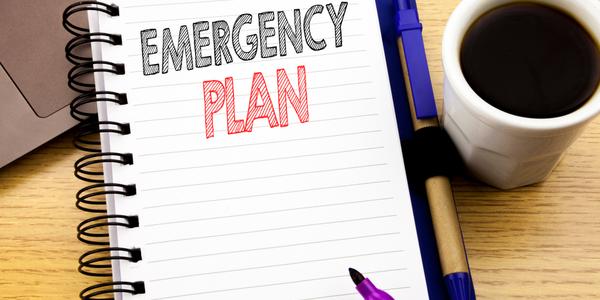5 Ways on How to Prepare for an Extreme Cold Weather Event

Weather used to be something you’d remark about to a friend or neighbor while making small talk. These days, extreme weather events are common front-page news. And it’s no wonder why. These are some great tips on how to prepare for extreme cold weather event.
Last month, we saw a mighty snow and ice storm take nearly half of Texas’ electricity-generating capacity offline leaving 4.5 million customers without power for days. In worse cases,15 million residents lost access to clean water as the lack of electricity and harsh weather conditions negatively impacted local systems’ supplies.
How to Prepare for Extreme Cold Weather
This is the first natural disaster of 2021. There’s little chance this one will be the last. In recent decades, the U.S. has endured hellish wildfires in the west, gob-smacking tornadoes in the breadbasket, damaging rainstorms in the east and battering hurricanes on the coastlines.
According to the Environmental Protection Agency (EPA), nine of the top 10 years with the most extreme one-day precipitation events have taken place since 1990. This statistic and others suggest this new pattern of intense weather is here to stay—and will only get worse.
So what should you do? Build a bunker in your basement and hold out until there’s a change or take a few simple, common-sense steps to prepare for a powerful weather event? Given the choices, preparation is probably the better path to safety! We’ve put together five tips to prepare for an extreme weather event.
Tip #1: Don’t forget the basics
No one wants tons of useless things sitting around taking up space! But there are a few items you should have on hand at all times, no matter what. If space is an issue, keep in mind you’ll be storing your basics in one spot that shouldn’t take up too much room.
First, you’ll need a large, waterproof plastic bin. Find an easy-to-access storage place, and add the following:
- first aid kit (this 175-piece kit from Senior.com covers basic emergency situations);
- several gallons of bottled water;
- non-perishable food;
- Batteries (including travel batteries for mobility devices);
- towels and blankets; and
- a laminated list of emergency contacts and phone numbers.
You never know what you’re going to need or when you’ll need it. So it’s always better to be prepared!
Tip #2: Electronics are essential
During (and in the immediate aftermath of) an extreme weather event, your focus will be communicating with the outside world—whether that’s family, local government or neighbors. Accessing public health and safety information will be vital as well.
If you’re in the midst of the emergency and have a working phone on hand, great! But have a backup power source on-hand to charge your phone as needed. Check the backup battery every few months to make sure there will be a full charge when you need it.
If your phone is out of charge or there’s no service, your next best solution for getting information is a battery- or solar-powered radio.
Tip #3: Protect what’s precious
If you don’t already have a fire and waterproof safe, get one now. These handy devices protect your most precious valuables like jewelry, photos, cash and documents from the elements.
Senior.com has a great selection of fire and waterproof safes to choose from. Prices range from $10,000 for floor-to-ceiling models all the way down to $100 safes that hold just a few important documents.
Tip #4: Maintain backup medication supply
If you take any medications regularly, keep a backup supply with your emergency kit. Whether you’re snowbound, displaced by a flood or on the run from zombies, medication should be your last worry. Set a reminder on your phone to use and replace your supply so it’s always within the usability period rather than expired.
Tip #5: Take action!
Emergencies are rare—that’s why they’re called emergencies. But with scarcity comes apathy. Based on the increased frequency of extreme weather events, you can no longer put off emergency preparedness for another day. Making lists and adding emergency supplies to your Amazon wishlist to purchase later does nothing. To be truly prepared, you need to take action!
If the past year has taught us anything, it’s to expect the unexpected. But now you know how to prepare for an extreme weather event. Make a plan, buy your supplies, and assemble your emergency kit today!

